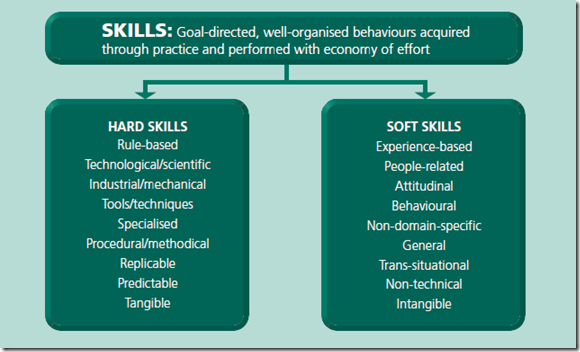Most workplaces are collaborative environments where problems need to be resolved and decisions need to be made. People and teams need to interact and collaborate in as efficient and effective a manner as possible to realise the goals of the organisation.
This requires a combination of hard skills (mostly technical) and soft skills (such as listening, empathy, self-management and relationship-building) – as the diagram below illustrates in more detail.
Source:Chartered Institute of Personnel and Development, Using the Head and the Heart at Work
We know this about soft skills:
- a lack of soft skills is a barrier to employability
- soft skills enhance productivity
- soft skills are an essential component of effective leadership and management
So if soft skills are self-evidently so important:
- why don’t they get taught in most university programmes?
- why don’t employers check them out when making important appointments?
The short answer is “I don’t know for sure”. It’s probably because hard skills are more tangible, easier to measure and within the comfort zone – whereas soft skills are subjective and intangible.
So, what can be done? Well, the good news is that soft skills can be learned. So academia needs to wake up and smell the coffee while some employers might do well to recognise that there is a hard case for soft skills.
